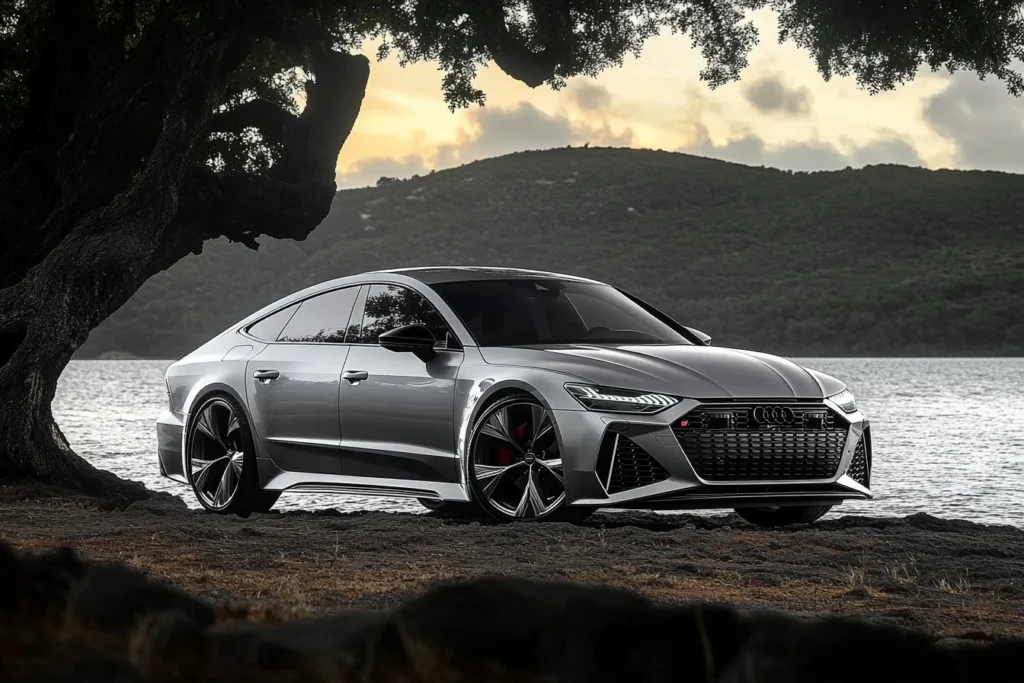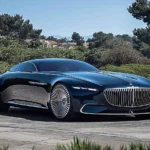The Future of Audi’s RS 7: A Shift Towards Efficiency
With the auto industry forever changing, automakers are finding new ways of blending performance and efficiency. Audi’s awesome RS 7 is up there with the most special cars on sale, both in terms of its performance and aggressive looks that car make even a supercar blush. The next one could go down a new path however as rumors are suggesting it might be offered standard for five doors instead of four to help tackle competition accelerating along from Porsche and Tesla alike. Each seems more likely considering a recent report claiming the next RS 7 could use a V-6 in conjunction with plug-in hybrid technology to get as much, if not more power than today.
The Mini Powerhouse Angle
That certainly bucks tradition, as the RS badge has always tended to be attatched to big-engine high performance. (Downsizing isn’t always a bad thing, though.) Audi has previously used turbocharged inline-fives in its high performance models, but is switching to a V-6 here in an attempt to balance the need for continued exciting performance with stricter fuel economy and emissions regulations.
Plug-in Hybrid: A Game Changer
But what’s of real intrigue is the new plug-in hybrid powertrain which will be accompanied by this all-new Focus model. This system makes use of gasoline and electric power to provide an exceptional horsepower rating without sacrificing efficiency. A V-6-powered RS 7 could also be equipped with an electric motor to help perk things up if necessary, giving the driver usable torque and responsiveness.
The Benefits of Hybridization
Broadening its existing offering with an eye towards the shifting automotive landscape is meant to appeal both to environmentally conscious buyers as well as performance fans, but will a transition like this be enough in today’s market? Hybrid systems have several advantages:
- Boosted Power Delivery: More power is available from the electric motor to supplement acceleration gains across the driving experience.
- Enhanced Efficiency:A full petrol engine is now more efficient than it once was, but a hybrid system will help cut fuel use by becoming greener for everyday driving.
- Less Emissions: The car can be run on less emissions through use of electric power, in line with global efforts to limit environmental burden.
The Future of Performance Cars
Sure, some traditionalists may bemoan the sounds of change, but a mating between V-6 power and plug-in hybrid tech is an evolutionary fork in performance-car space. The Language of AudingenuityFamous for back at the turn of the century, Audi engineers have long been lauded as some of Germany’s capable innovators with heritage comfortably in tow. This could be a grade-carving template for other top-performers to follow: After all, the RS 7’s evolution.
Conclusion
The next RS 7 will not only be quick, but potentially employ a mild hybrid system as well. Yet Audi’s plan to partner a downsized V-6 engine with plug-in capability may not only reshape the allowances of driving high-performance machines but also prove as progress towards sizing power individually during an automotive sustainable future. While we wait for more information, it seems the new RS 7 will carry on in line with those that went before while writing an exciting new chapter in performance engineering.
Be sure to check back for more info as Audi officially unveils this already game-changing vehicle.







